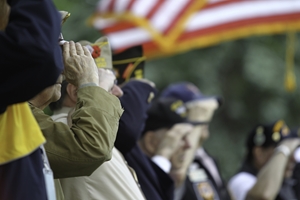The U.S. House of Representatives on Feb. 9 passed a handful of veterans bills, reported the Military Times. The legislation addresses education, health and regulatory issues impacting former members of the military.
VA reform continues
In May 2014, federal investigators discovered that administrators at the Department of Veterans Affairs had manipulated waiting lists at a veterans medical center in Phoenix to cover up abnormally long wait times, reported The New York Times. As many as 1,700 patients failed to receive treatment as a result. This revelation set off a nationwide controversy over the department's seemingly mangled inner workings. Further investigations uncovered widespread internal disarray. Approximately 57,000 veterans had been waiting for treatment for at least three months and another 64,000 had never even seen a doctor despite requesting appointments for a decade.
Legislators promised to address the issue.
"It's time to put the partisanship aside and focus on what's right for our veterans," Sen. John Walsh of Montana told The Times.
In August 2014, President Barack Obama signed into law the Veterans' Access to Care through Choice, Accountability and Transparency Act which gave the VA $16 billion to overhaul its infrastructure, reported Politico.
On Feb. 9, the House added to the 2014 reform bill by passing an additional measure that would enable federal entities like the Army Corps of Engineers to oversee large-scale VA construction projects, reported The Times. According to Stars and Stripes, the VA is currently managing ongoing projects totaling $100 million. The House passed another bill that would require the department to assign specialized administrative teams to medical facilities that fail to meet regulatory expectations.
Addressing health concerns
According to the Los Angeles Times, legislators put through a piece of legislation that would fund suicide prevention programs for female veterans. The bill was designed to complement the Clay Hunt SAV Act, a 2015 law that requires the VA to periodically review its mental health guidelines. It would also require the VA and other government agencies to develop special mental health standards for veterans who took on classified combat roles.
"This is an important first step," Rep. Julia Brownley of California, the bill's sponsor, said in an interview with the paper. "It's pretty simple and straightforward, but it's also a really important direction that the VA needs to go in."
The House addressed benefits disbursement, passing legislation that would automate veterans' cost-of-living adjustments.
Improvements to the GI bill
Representatives passed another bill that would require higher education programs eligible for payment under the GI bill to obtain state accreditation and report on veteran enrollment.
"I strongly believe that we should take whatever steps necessary to simplify the veterans' education benefits our service members earned," Rep. Ken Calvert of California, the bill's sponsor, said in a statement.

